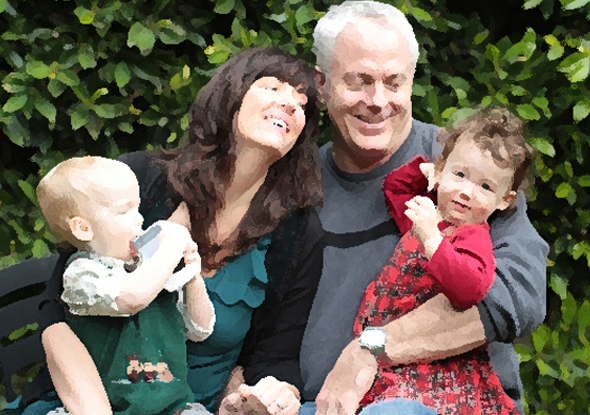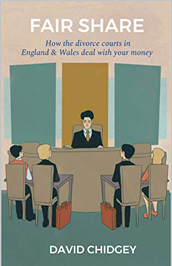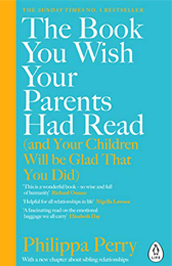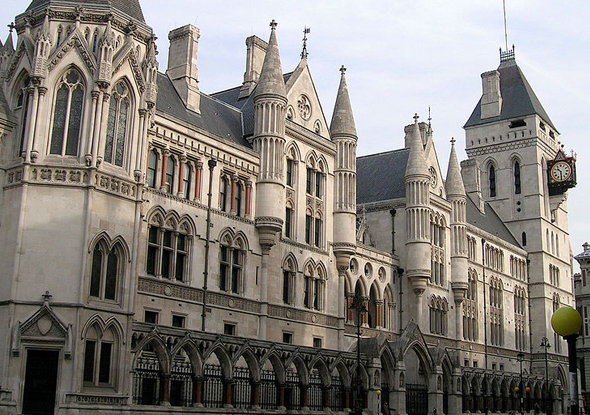Living Together. Part One: Who Are Cohabitants And How Does The Law Affect Them?

This blog contains affiliate links, which we may receive a commission for purchases. The decision is yours, whether or not you decide to buy.
With over 3.1 million unmarried couples living together in the UK today, compared with 1.5 million back in 1996, it seems more and more of us want to put-off marrying, or avoid marriage completely.
Given that fact, it is now more important than ever to appreciate that the way the law affects you can vary quite radically; depending on who you live with, and the nature of your relationship.
Who is a Cohabitant and who is not?
You could be forgiven for imagining that the law would consider cohabitation to be “the state of living, or existing, at the same place and time”, as it is described in the Oxford Dictionary. In fact, the legal concept of cohabitation is much narrower.
The courts have broadly accepted that cohabitation comprises certain key features, including:
- Elements of permanence in the relationship,
- Frequent and intimate contact, - Mutual support,
- Voluntary restraint upon personal freedom,
- Sharing of resources.
Understandably this means that certain groups, like roommates, or lodgers and landlords, are not considered to be cohabiting. However, a number of statutes specify that people should only be considered to be cohabitants when they live together as though they had married, or entered into a civil partnership.
The result is that ‘Alternative Families’, such as sisters who live together, are not looked upon as cohabitants even when they display all the features of permeance, support and interdependence; and even when they are raising children together.
This article is set out in two portions; the first giving an overview of how the law treats cohabitants, and the second showing some of the ways in which Alternative Families are treated differently. As will be seen, whether the law recognises you as a cohabitant, or not, can have significant ramifications.
Common Law Marriage
Contrary to widespread belief, there never was such a thing as a ‘Common-Law Marriage’ in this jurisdiction, as it is thought of today.
Couples who have cohabited over a long period of time do not eventually acquire the same rights and obligations as married couples. In some contexts, cohabitee’s rights are similar to those of spouses, but in others they are treated altogether differently.
Protection from violence
Here the rights of cohabitees and spouses are similar. Occupation Orders and Non-Molestation Orders both exist to protect against domestic violence and harassment.
They are available to cohabitants and former-cohabitants. Occupation Orders can be used to temporarily remove an abusive partner from the household, prevent them from returning, and permit the victim to remain in the property.
Non-Molestation Orders are a form of injunction, made to prevent acts of physical violence, threats, or pestering. Failure to comply constitutes a criminal offence.
Where instances of domestic violence occur between siblings, and other non-sexual partners who live together, it is usually possible for the victim to rely upon at-least some of the legal protections that cohabitants can call upon.
This is because relatives and people who are (or were) sharing the same home (unless doing so as an employee, tenant, lodger or boarder) can apply for a Non-Molestation Order, because they fall within the category of “Associated Persons”.
However, Associated Persons cannot seek an Occupation Order unless they have a beneficial interest in the household, a legal interest in the household, or some other right to remain in occupation of the household.
This leaves open the prospect of a member of an Alternative Family being driven from their home by an abusive partner.
Status of and provision for Children
When unmarried couples have a child, only the mother is automatically given Parental Responsibility, no matter how dedicated or stable the parent’s relationship is.
There are, however, a number of ways through which an unmarried father can attain Parental Responsibility:
- Being registered on the birth certificate as the child’s father. (Unless the child was born before , . . December 1st 2013)
- Marrying the mother.
- Forming a written Parental Responsibility Agreement with the mother, in the correct form.
- Seeking Parental Responsibility from the courts.
Lacking Parental Responsibility does not mean that a father has no obligations towards his children.
Even when the father is without Parental Responsibility, he has a duty to provide for his child financially and will be expected to make Child Maintenance Payments if he is non-resident.
Financial Support after separation
Unlike when marriages and civil partnerships break down, the courts have no power to redistribute property between cohabitants who are separating.
Whether a cohabitant is entitled to a share of the household and other property is determined according to the strict principles of property and trusts law; potentially leaving parents who stay at home to raise children with little in the way of financial security.
Cohabiting couples should therefore seriously consider, at the outset, whether they wish to establish joint ownership of the family home and whether they wish to form a Cohabitation Agreement.
These questions will be explored more thoroughly in Parts Two and Three of this series of articles.
Inheritance
In the event that a cohabitant dies, without having left a valid will, their partner will have no entitlement to inherit their property under the laws of Intestacy. For this reason, it is paramount that those intending to cohabit provide for each other, by making wills.
The Doctrine of Survivorship, in relation to land that is jointly owned, and the provisions of the Inheritance (Provision for Family and Dependents) Act 1975, can provide further financial security for a bereaved cohabitant, and these will be discussed further in Part Three.
As brothers, sisters, nephews/nieces, grandparents and aunts/uncles can benefit under the laws of Intestacy, this is one aspect in which an Alternative Family could be regarded as having been better provided for than cohabiting couples. The opposite is true in various other respects.
Alternative Families left out in the cold?
Long-term, committed and mutually supportive relationships between siblings, and other non-sexual partners are neither new-fangled, nor are they especially uncommon*. Yet our laws do not regard such partners in the same way as cohabitants, even when they are bringing up children together.
Parliament has yet to fully consider the issue, ensuring that for some (like the Burden Sisters and the Utley Sisters), the present state of the law can create considerable hardship.
As discussed above, the present law can leave open the prospect of a member of an Alternative Family being driven from their home by an abusive partner.
Another way in which members of Alternative Families could be forced to leave their home is through the payment of Inheritance Tax, as was confirmed when the Burden Sisters lost their case in the European Court of Human Rights.
When married couples, or civil partners, leave their home to their spouse in a will, this transfer is exempt from taxation under the Inheritance Act 1984.
Cohabitants can choose to reap the same benefit by choosing to marry but, of course, sisters and other such relations cannot.
For Joyce and Sybil Burden, this means they may well lose their home, which they have shared for over thirty-one years, once one of them passes away.
Reform on the Horizon
The Law Commission, alongside many legal practitioners and academics, have concluded the current state of the law surrounding cohabitation is simply inadequate.
If reform is to be made it will have to come from Parliament but, based on 2016’s House of Commons Briefing Paper ‘Common Law Marriage and Cohabitation’ there would seem to be little appetite for change at the present time.
Written by George Hallam-Attree, paralegal at London Family Solicitor. For more information, please call on 0203 865 1535. You may also want to refer to our website at: www.london-family-solicitor.co.uk
*The Recusant Catholic sisters, Lady Anne and Lady Eleanor Vaux, are a 16th Century example of an Alternative Family unit and the practise of sisters living together, over the course of a lifetime, became increasingly common in the aftermath of World War One. Four of the author’s own relatives lived in similar arrangements.
You may also like
Books
Buy now from Amazon
- The Co-Parenting Handbook
- Fair Share: How the divorce courts in England & Wales deal with your money
- The Book You Wish Your Parents Had Read THE #1 SUNDAY TIMES BESTSELLER
Podcast
This personal finance podcast is for women, including female entrepreneurs to learn personal finance, money mindset & practical money management tips to be financially confident. To get in control of money, to budget, gain financial confidence, learn how to invest, save money & manage money mindset and behaviours. Hosted by a multi- award winning qualified financial planner and financial coach.
- Listen to the In Her Financial Shoes Podcast
- Catherine Morgan full profile
- More professional podcasts
Articles
- 8 Ways You Can Stay Financially Fit After Your Divorce
- Five Things To Let Go Of After Divorce
- Buying A Home Post Divorce Part 1
Videos
Practical advice and tips from professionals on what to do with issues and challenges around divorce from parenting to finance.
Events
Practical tips & advice designed to help people going through divorce, whether online or in person.
Useful links
Here's a selection of organistaioins from parenting to finance to help you with your divorce.

.jpg)





.jpg)






